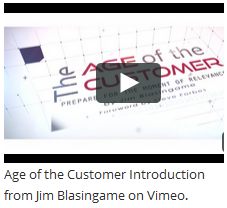Adam Smith, the father of modern economics and author of The Wealth of Nations (1776), identified writing as one of the three most important inventions of mankind – the other two being money and economic tables.
More than two centuries later, the Internet has powered the written word to levels unimagined only a generation ago, let alone during Smith’s era. Indeed, it is the driving force behind a handy new-media maxim, “Content is King.”
Today we’re consumers of many kinds of online content, including streaming audio and video. But even in the face of such multi-media majesty as iTunes and YouTube, most of the kingly content is still in the graphic form so highly regarded by Smith.
 So what does all of this mean for small business owners? It’s simple: In an era when content is king, if you want to connect with customers competitively and stay connected, you have to produce more written words than ever before. But not just any words – authentic words.
So what does all of this mean for small business owners? It’s simple: In an era when content is king, if you want to connect with customers competitively and stay connected, you have to produce more written words than ever before. But not just any words – authentic words.
Since 1999 – long before blogs and social media – two of the things I’ve encouraged small business owners to do is: 1) develop better writing skills and 2) publish more of their own words online that communicate to and connect with customers.
In the 2nd decade of the 21st century, prospects and customers want to read about the stuff you sell before they meet you. But they want more than marketing messaging; they want authentic, straight-from-the-horse’s-mouth information that delivers three things that are increasingly a big deal to customers: the voice, vision and values of the human beings behind the stuff, as unartful and unscripted as they may be.
So don’t worry if you’re not a professional wordsmith. When you need fancy words for strategic marketing messaging, online or otherwise, hire a pro. But you must become comfortable with conveying your vision and values online, in your own words – the voice – about a variety of issues from explaining how to use a product you sell to a local cause you care about to your philosophy on serving customers. And it’s just fine if some of these authentic words come from employees.
In The Age of the Customer®, now armed with as much information as the businesses they patronize, customers expect to be treated more like insiders. The good news is that no one makes this connection as effectively and authentically as a small business.
Let customers read about the authentic side of you and your business.




